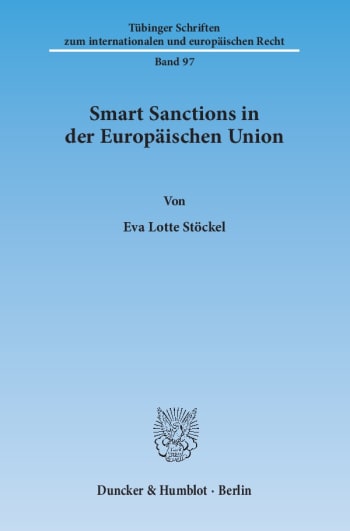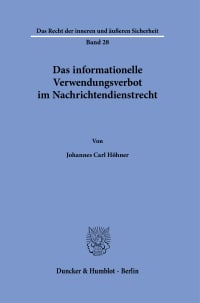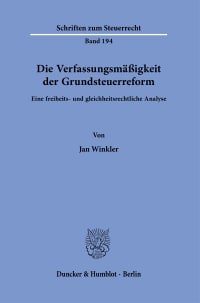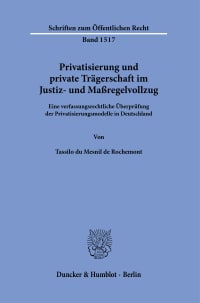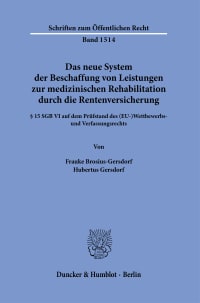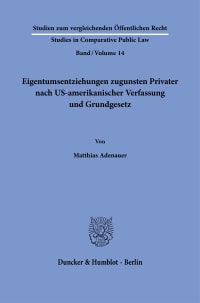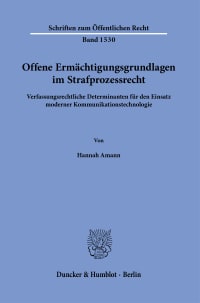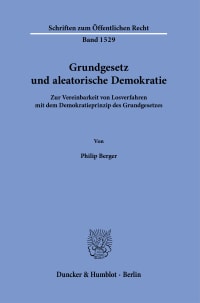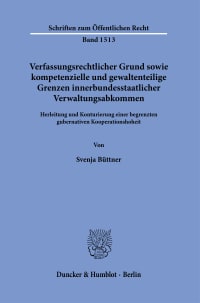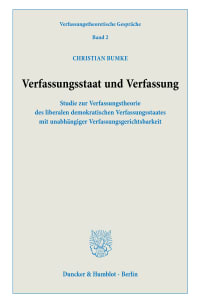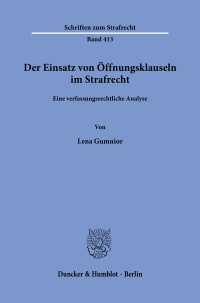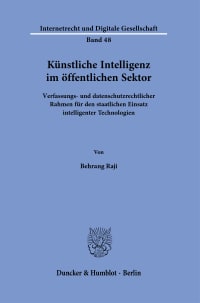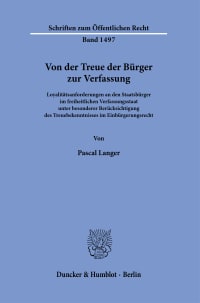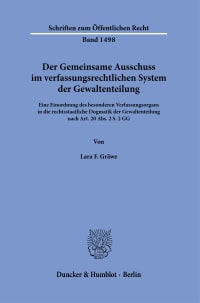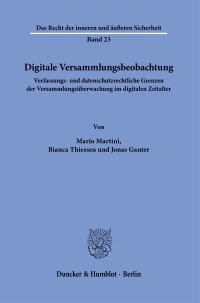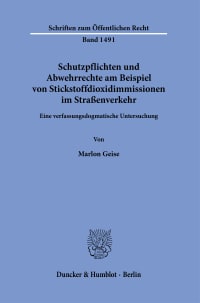Description
For some time now, the United Nations has not only adopted traditional economic sanctions regimes under Article 41 (2) of the UN-Charter against states in order to implement International law but has also made increasing use of so-called »smart« or »targeted« sanctions against individuals and organizations. These measures regularly involve the freezing of assets belonging to listed individuals and entities and the making of orders to prevent new funds becoming available by cutting off their financial resources. Following the September 11th attacks and the global fight against terrorism, these smart sanctions have also found their way into the law of the European Union (EU). On the one hand, the EU has adopted the UN sanctions regimes and transformed them into EU law. On the other hand, the EU has adopted a number of autonomous smart sanctions regimes which are targeted against criminal elites in third states.
This study seeks to outline and answer the main issues raised in the context of smart sanctions following the current developments in EU policy and taking account of the judgments of the European courts. A special focus of this work is the international debate on whether legal safeguards, including human rights standards, apply or should apply to smart sanctions regimes where International law and EU law overlap.
Overview
Vorbemerkungen
1. Einführung
Begriffsbestimmung – Kategorisierung – Systematische Einordnung – Historische Entwicklung
2. Smart sanctions in der Europäischen Union
Smart sanctions zur Terrorismusbekämpfung – Smart sanctions gegen Amtsträger und kriminelle Eliten
3. Kompetenz und Verfahren
Kompetenz – Verfahren – Zusammenfassung – Fazit
4. Das Verhältnis zwischen UN und EU
Bindungswirkung des UN-Rechts innerhalb der Gemeinschaftsrechtsordnung – Rangverhältnis zwischen UN-Recht und EG-Recht
5. Vereinbarkeit mit europäischen Grundrechtsstandards
Grundrechtsschutz in der EU – Vereinbarkeit von smart sanctions mit europäischen Grundrechtsstandards am Beispiel der Terrorismusbekämpfung – Rechtsschutzmöglichkeiten unter Berücksichtigung des Vertrags von Lissabon
6. Schlussbetrachtung
Smart sanctions im Kontext von Freiheit und Sicherheit – Smart sanctions im Kontext des Grundrechtsschutzes im Mehrebenensystem
Entscheidungsverzeichnis
Literaturverzeichnis
Press Reviews
»Die Arbeit leistet zunächst einen relevanten Beitrag zur Kategorisierung der Sanktionen, einmal differenziert nach dem Adressatenkreis, differenziert aber auch danach, ob es sich um durch die UN veranlasste oder EU-autonome smart sanctions handelt. [...] Detailreich, informativ und gut strukturiert wird die Praxis der EU zu den smart sanctions auf Grundlage der vorher getroffenen kategorialen Einordnung aufbereitet. [...] Insgesamt gelingt eine engagierte Arbeit, die auch dort, wo es ihr an letzter Aktualität fehlt, schon deutlich mehr leistet als eine bloße entwicklungsgeschichtliche Selbstvergewisserung auf rechtsstaatlich schwierigem Terrain.« Prof. Dr. Markus Kotzur, in: Deutsches Verwaltungsblatt, 3/2016
